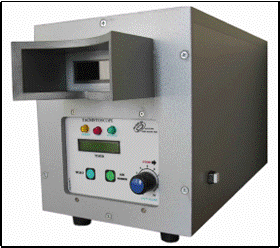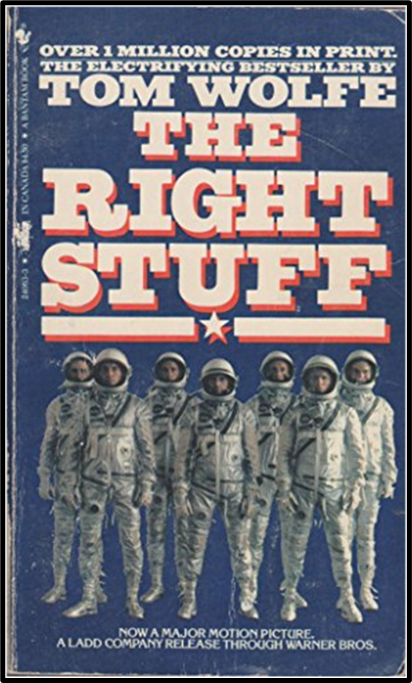TOOLS FOR ASSESSING UNDERLYING ASPECTS OF CHARACTER FOR PSYCHOLOGICALLY THREATENING WORK – PATRICK TOMLINSON (2025)
Date added: 23/07/25
Download a Free PDF of this Article
Great organizations constantly change, not only to adapt, but to innovate and improve. A product of work is the people who work in the organization. Great organizations develop people at work, not only their competence but also their character. (Maccoby, 2015, pp. 149-150)
For over 30 years, I have had a specific interest in how personal character affects performance, capability, development, and resilience. This page collects some of the key points of learning and how it has led me to the development of CAST (Character Assessment & Selection Tool).

My first senior management role in 1994 had responsibility for staff selection, training, and development. The task of the organization, the Cotswold Community, was to provide therapeutic residential care for children and young people who had suffered significant levels of trauma and other adversities. To help put this work into context, a PDF can be downloaded from this page of a journal special edition about the work of the Cotswold Community. Therapeutic Communities, International Journal of Therapeutic Communities, 32, 4, Winter, 2011
As well as the work being physically and emotionally challenging, we worked around 70-80 hours per week. So, unsurprisingly, when I researched the level of staff turnover of the previous 15 years, I found that the average length of stay for workers who were directly involved with the young people was about 2.5 years. The number of days lost through sickness was less than 5% which was better than the 10% at the local government social work department.
The Defence Mechanism Test (DMT)
It was strongly felt in this organization that if we could improve staff retention to over three years, this would be hugely beneficial to the young people and the primary task of the organization. Not long into my new role, I had the good fortune to be introduced to Olya Khaleelee, who had carried out a pilot study at the organization, using the Defence Mechanism Test (DMT). The DMT was developed by Kragh during the 1950s because of a high level of failure in the selection of Swedish trainee fighter pilots.
It turned out to be a useful tool, and since then, it has been used in other dangerous professions, such as deep-sea diving. A further development was the realization that while managers and leaders might not be in physical danger, the psychological threats and dangers elicit similar defensive responses. These unconscious defence mechanisms help a person survive in threatening situations, but can also reduce their ability to see things clearly and undermine their capability. The DMT continues to be used 75 years after its creation.

The DMT is carried out using a Tachistoscope. The first tachistoscope was initially described by the German physiologist AW Volkmann in 1859. The machine is designed to flash a series of images very quickly, sometimes so that they appear on a screen at only 1/100th of a second, to create a subliminal imprint in the mind. The device is designed to measure the visual field for a very short time and to verify the accuracy of perception.
A paper by Olya Khaleelee (1994) summarizing the pilot study can be downloaded from this page. The Defence Mechanism Test as an Aid for Selection and Development of Staff.
As the pilot study coincided with my appointment to the new role in 1994, it was a perfect opportunity to implement the findings of the pilot study. We began to use the DMT in the staff selection process. We also used it for looking at the development of staff already in post. We did this for the next 4-5 years. We found the tool to be very helpful in improving the development of staff. With better awareness of underlying issues and developmental needs, we were more effective. The DMT was also highly effective at identifying the characteristics represented by different combinations of defence mechanisms that could either promote or hinder resilience.
During the same period, we also developed the in-house training program, gaining accreditation up to the master’s level. As a result of the increased attention to the issue of staff selection development, and specifically the use of the DMT, within two years, staff turnover improved by 60% and was maintained for the next four years. This meant that the average length of stay had increased from 2.5 years to 4 years.
In future leadership roles, which I had after leaving this organization, I continued to benefit from what I had learned about the influence. The DMT was also used by Olya and one of her colleagues, Ralph Woolf, for assessing senior managers in several organizations. An article, Tomlinson (2009), The Use of the Defence Mechanism Test (DMT) to Assess Resilience and Management Potential in Stressful and Challenging Occupations, can also be downloaded on this page.
The main challenges I have found in the field of staff selection are related to,
1. Selection for entry-level positions.
2. Selection for promotion with higher levels of responsibility.
The obvious reason is that when a person enters a new position, which they have never been in before, the outcomes are highly unpredictable. Of course, every new position is unique, and no two organizations are the same. But when someone is going into an especially challenging situation for the first time, the unknowns are especially high. Where the role is highly demanding with high emotional impact, academic learning, theory, and qualifications are not a good indicator of likely success.
Underlying Character and Attributes
Underlying character and attributes are more relevant but difficult to detect in ordinary selection interview procedures.
 Certain occupations or tasks require high levels of attributes such as perseverance and fortitude. Detecting the ‘right stuff’ as Tom Wolfe, writing about test pilots and astronauts, famously put it, is not easy. Our attributes may make us well-suited to one kind of challenge but not necessarily another. It is crucial to find a good match between our attributes and the required task.
Certain occupations or tasks require high levels of attributes such as perseverance and fortitude. Detecting the ‘right stuff’ as Tom Wolfe, writing about test pilots and astronauts, famously put it, is not easy. Our attributes may make us well-suited to one kind of challenge but not necessarily another. It is crucial to find a good match between our attributes and the required task.
Rich Diviney has referred to the underlying character as Attributes. He claims (p.5) that,
“In such extreme situations, how you perform is much less about what you know than who you are. Your skills aren’t necessarily important. What matters more are your attributes.”
As is the case with defence mechanisms, he states (p.6),
But it’s important to remember that attributes are always running in the background. Highly challenging situations, especially ones rife with uncertainty that force you to operate on instinct, will bring them to the forefront.
Rigorous selection procedures, including 1-1 interviews, group processes, written exercises, and psychometric tests, can help improve the likelihood of making good decisions on who to appoint. It is also helpful if the selection process can identify key issues to work on in the person’s development once they are appointed. Even with the best methods, identifying underlying attributes and character is extremely difficult. So much so that Warner (1992, p.45), on behalf of the UK Department of Health, claimed,
The Institute of Personnel Management (IPM) noted in their written evidence that on its own, “the interview is not a good predictor of future job performance”. Research findings quoted in the evidence suggested that the interview has a validity coefficient of 0.14 (i.e., only 14 in 100 appointments based on interviews will meet employers’ expectations on job performance). The IPM commented that this is somewhat worse than making decisions on the toss of a coin.
Character Assessment and Selection Tool (CAST)
The 1st step in developing a high-performance culture – select on character. (Owen Eastwood, Leadership Consultant)
Character triumphs over talent. (James Kerr)
Hire Character: Train Skill. (Peter Werner Schutz, President and CEO of Porsche, 1981-1987)
During the last 10 years, I have continued to see the challenge of creating effective staff selection and development processes. I have worked with some organization to review and redesign their processes. The results of this work have been positive on organizational performance at all levels, including finance, and in improving staff retention and reducing sickness.
A key objective became to develop an assessment process that would improve the quality of staff selection and development, in a way that was practical and accessible. The accessibility issue is especially important for recruitment processes that can include significant numbers of people. So, I carried out research for over a year on what has been learned about the issue of character and its development. I found a rich source of research, some of which is included in the bibliography below.
After the research, I then created an assessment format with around 50 short questions to try and ascertain issues of underlying character. In particular, the assessment looked at matters related to sense of purpose, perseverance, growth mindset, and ownership. These are all matters that are relevant to resilience and the capacity for holding responsibility. I also looked at the issue of how one approaches the development of oneself and others. For example, the combination of being demanding and supportive (see Tomlinson, 2021). A key aspect of the CAST assessment is that it identifies areas of work for development.
The assessment questions were designed to try and understand more about a person’s underlying character rather than their academic understanding of the work task. Once the assessment was created, I tested it by carrying out on around 50 people. The results were exceptionally encouraging, especially in the correlation of assessment results and level of work performance. I carried out a blind test on 12 people, with no information about their work history or quality of performance. Following the feedback I gave on each candidate to the Director of Operations, who commissioned the assessments, he wrote,
From Owner/Director to entry-level, almost a fifth of our workforce was assessed to help us better understand their needs and how they fit into the company’s overall mission. The results could not be more positive. Through a simple question and answer process, completed over a 75-minute session, we gained insight into employees’ strengths and challenges, appropriate methods of support, and current and future role suitability.
I continued to refine the assessment and use it with many professionals and organizations in several countries. The quality and success of the assessment led to a demand for an online automated version so that it can be accessed by larger numbers of candidates, for staff selection and/or development purposes. This is now available. https://www.castassessment.com/optionsandprices
A PDF of this article can be downloaded from this page. At the bottom of the page, these two articles can also be downloaded.
Assessing Character & Resilience for Staff Selection & Development - Patrick Tomlinson (2021, Revised 2025)
Assessing Character & Underlying Attributes for Exceptionally Challenging Roles and Work - Patrick Tomlinson (2024, Revised 2025)
REFERENCES AND BIBLIOGRAPHY
Collins. J. (2001) Good to Great: Why Some Companies Make the Leap and Others Don’t, New York: HarperCollins Publishers
Diviney, R. (2021) The Attributes: 25 Hidden Drivers of Optimal Performance, New York: Random House
Duckworth, A. (2016) Grit: The Power and Passion of Perseverance, London: Vermilion
Dweck, C.S. (2016) Mindset: The New Psychology of Success, New York: Penguin Random House L.L.C.
Kerr, J. (2013) Legacy: What the All Blacks can Teach us about the Business of Life, Constable: London. The Owen Eastwood reference is also from Legacy.
Khaleelee, O. and Tomlinson, P. (1997) Intrapsychic Factors in Staff Selection at the Cotswold Community, in, Therapeutic Communities Journal, Vol 18, No. 4
Khaleelee, O. (1994) The Defence Mechanism Test as an Aid for Selection and Development of Staff, in, Therapeutic Communities Journal, Vol. 15, No. 1
Khaleelee, O. (2007) The Use of the Defence Mechanism Test to Aid Understanding of the Personality of Senior Executives and the Implications for their Careers, Paper Prepared for Conference Entitled: Current Developments in the Use of Projective Techniques Across the Life Span, 15th June 2007
Maccoby, M. (2015) Strategic Intelligence: Conceptual Tools for Leading Change, Oxford, UK: Oxford University Press
Olson, J. (2013) The Slight Edge: Turning Simple Disciplines into Massive Success and Happiness, Plano, Texas: Success
Senge, P.M. (1990) The Fifth Discipline: The Art and Practice of the Learning Organization, New York: Currency
Syed, M. (2011) Bounce: Mozart, Federer, Beckham and the Science of Success, New York, London, Toronto, Sydney, New Delhi, Auckland: Harper/Perennial
Tomlinson, P. (2009) The Use of the Defence Mechanism Test (DMT) to Assess Resilience and Management Potential in Stressful and Challenging Occupations
Warner, D./Dept. Of Health (1992) Choosing with Care: Warner Report: The Report of the Committee of Inquiry into the Selection, Development and Management of Staff in Children's Homes, London: Stationery Office
Willink, J., & Babin, L. (2015) Extreme Ownership: How U.S. Navy SEALs Lead and Win, New York: St Martin’s Press
Files
- Download a Free PDF of this Article
- ASSESSING CHARACTER & RESILIENCE FOR STAFF SELECTION & DEVELOPMENT
- ASSESSING CHARACTER FOR EXCEPTIONALLY CHALLENGING ROLES AND WORK
- The Use of the Defence Mechanism Test (DMT) to Assess Resilience and Management Potential in Stressf
- INTRAPSYCHIC FACTORS IN STAFF SELECTION AT THE COTSWOLD COMMUNITY
- THE DEFENCE MECHANISM TEST AS AN AID FOR SELECTION AND DEVELOPMENT OF STAFF
- Journal TC special edition. The Cotswold Community
Please leave a comment
Next Steps - If you have a question please use the button below. If you would like to find out more
or discuss a particular requirement with Patrick, please book a free exploratory meeting
Ask a question or
Book a free meeting













